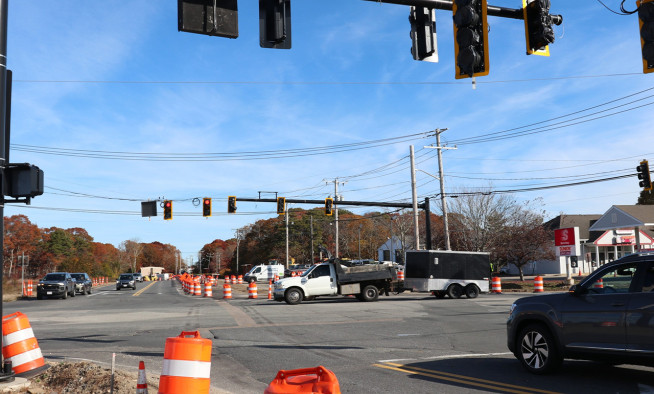Examining the Economic Impacts of Climate Change
Cape Cod is experiencing impacts from climate change today that are anticipated to worsen in the coming decades. As we prepare for the future, it is important to understand the impacts that climate change will have to our economy.
As part of the work to create the Cape Cod Climate Action Plan, the Cape Cod Commission engaged with Eastern Research Group (ERG) and Synapse Energy Economics (Synapse) to examine the economic impacts of climate change.
The report assesses the impacts climate change may have on Cape Cod’s economy, revenues, and investment decisions, and evaluates costs and benefits of key strategies to address climate change.
Research shows that climate change and continued reliance on fossil fuels will affect all sectors of Cape Cod’s economy. Sea level rise will increase instances of flooding and damage to coastal property and infrastructure. Warming ocean temperatures will alter fisheries and encourage harmful algal blooms. Burning of fossil fuels will continue to emit pollutants with adverse effects on public health.
If we do nothing to adapt to climate change, the report indicates that financial losses will be severe. ERG estimates that between 2021 and 2100, private, commercial, and public buildings will incur about $13.4 to $17.8 billion in damage as a result of sea level rise and storm surge combined. By 2050, approximately 45 businesses, 415 jobs, and $16 million in annual wages will be located at establishments inundated by sea level rise. Damage to our roadways and infrastructure, salt marshes, and cranberry bogs will also result in severe losses, and our tourism and fisheries industries will also be impacted.
A significant reduction in emissions is necessary. Synapse modeled emissions from the transportation, building, and electricity sectors from 2021 through 2050, assuming current policy goals are met, and found that sustained policy will not achieve emissions reductions consistent with the Commonwealth of Massachusetts goals. The Commission, ERG, and Synapse developed four decarbonization scenarios: a state -level emissions reduction baseline scenario, carbon emissions neutrality reduction scenario, state-level emissions reduction aggressive efficiency scenario, and a state-level emissions reduction year-round residency sensitivity scenario. Rapid transformations are required across all sectors to be on pace to meet decarbonization targets. Climate-related financial losses to our region could be significant if we do not work to adapt to and mitigate its impacts. This report outlines strategies the region can take that help inform the broader Cape Cod Climate Action Plan.
View the Economic Impacts of Climate Change Report (Executive Summary)
Related Posts




